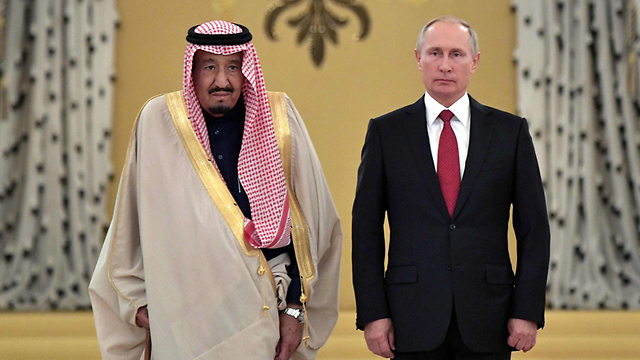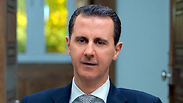

In long run, Israel favors secular Assad over Shiite Islamist regime in Syria
Analysis: Russian-Iranian relations experienced many ups and downs over the years, but have been improved following the cooperation in the civil war in Syria. Will this new alliance break up once the battles in Syria are over? No one knows, but Saudi Arabia and Israel have both indicated they would rather see a Russian Syria than an Iranian Syria.
Bashar Assad’s army controls nearly two-thirds of Syria, following about two years in which forces loyal to Russia and pro-Iranian forces fought side by side. But as the moment of truth draws nearer, the question is: Do Russia and Iran share the same goals? And what is the Israeli and Saudi stance on the issue?
Unlike Israel-US relations, Russia and Iran share no values whatsoever. Russia is a sort of secular dictatorship, and Iran is a religious Islamic country. The future of the interest-based cooperation between these two countries in Syria is unpredictable.
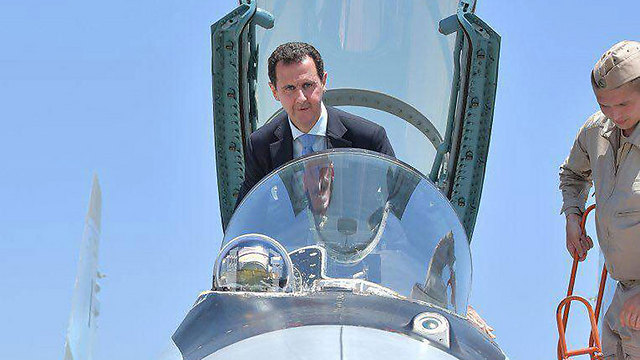
Iran and Russia relations experienced many ups and downs over the years. After the Islamic Revolution in 1979, Iran severed ties with the Soviet Union and even referred to it as “the lesser Satan.” From 1980 to 1988, Russia helped Iraq in its war against Iran. The revolution began after the Soviet Union’s dissolution, when Russia built Iran’s nuclear reactor in Bushehr in 1992.
Russian President Vladimir Putin upgraded the relations between the countries and signed many agreements with Iran in the military and energy fields. The fact that both countries were subject to hostility and sanctions from the United States and the West only brought them closer together. The crisis in Syria created, for the first time, a military coalition between the two countries and between their protégés—the Syrian army and different Shiite militias.
Disagreements about Syria
The conflicts of interest between Russia and Iran emerged, however, at the start of the direct Russian involvement in Syria in the summer of 2015. The repeated ceasefires declared by Russia were regularly violated by the Shiite militias supported by Tehran. Russia realized its Iranian partner had no interest in an agreement, but only in a military takeover, using the advantage gained by the “resistance axis” (the “makauma”) over the Sunni opposition for the first time since 2015.
Russia, on the other hand, is willing to settle for an agreement that would end the war and secure the Syrian army’s advantage, allowing Moscow to sustain its naval and air bases in northwest Syria over a long period of time.
Russia and Iran’s long-term conflicts of interests are more fundamental and have to do with the definition of the nature of the post-war Syrian state. Russia wants secular Assad’s regime to continue and has no problem with its dictatorial nature, as long as it maintains its absolute loyalty to the Russians and keeps purchasing Russian weapons as it did before the war.
Iran, on the other hand, has far-reaching aspirations concerning Syria and it won’t settle for restoring the situation to its previous state. As far as Tehran is concerned, Syria is part of the “Shiite project,” in which the entire southern part of Syria, including some of its capital, Damascus, would turn into a base of Hezbollah and Afghan and Iraqi militias under the Revolutionary Guards’ supervision.
Iran is interested in creating a land corridor from its territory to Lebanon through Iraq and Syria, as well as in opening a new front against Israel in the Golan Heights. The way Iran sees it, the future state of Syria will be under the influence of Shiite religious clerics, who the Alawi sheikhs will be subject to as well. The past two years have seen Shiite ceremonies being held in public for the first time in Damascus, which used to be the heart of the Sunni world.
Russia doesn’t want to discover that it launched a war on Sunni Islamic terror it launched only for it to be replaced by a new Shiite Islamic entity. Russia is aware of the fact that Iran took advantage of its intervention in favor of the Syrian regime to settle scores with Sunni organization based on Shiite religious revenge.
Which protégé will control the region?
Russia isn’t interested in a continued involvement of Hezbollah, Iran’s main protégé, in all the wars taking place in Syria. Rather, it is interested in bolstering the Syrian military’s wing that is under its command. Moscow is thus making an effort to dissolve the militias loyal to the Assad regime and get them to join the Syrian army, hoping to secure Russian control of the areas conquered from the moderate rebels and from ISIS and to prevent Iran from seizing these lands. In the past two years, Russia established two new brigades in the Syrian army for that purpose, and it is providing the army with weapons, training and even medals for merit.
Although it won’t admit it, Russia is following Hezbollah’s takeover of entire quarters in the main cities of Aleppo and Damascus, and the establishment of Hezbollah’s permanent bases along the border with Lebanon on Syrian soil, with great concern. The Russians believe there are units within the Syrian army that are under Russian control but obey the Revolutionary Guards. These units could turn into rivals at the end of the war.
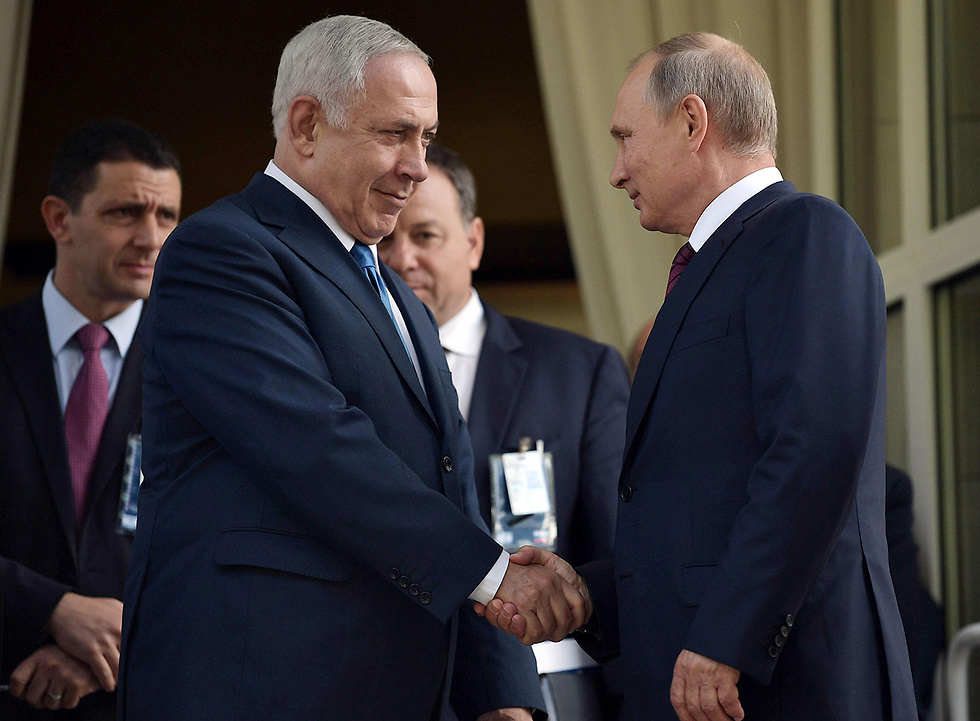
The Iranian aid, which saved the Syrian regime from 2012 to 2014, is basically no longer needed since the summer of 2015, when Russia became directly involved in the Syrian civil war. Now that the Syrian army is growing and being led by the Russians to occupation and victory in most parts of Syria, the Iranian involvement is turning into a burden. Iran is interested in receiving a return for its huge sacrifice and financial investment in the Syrian regime since the beginning of the crisis. But, as we know, there are no free gifts.
Russian-Iranian cooperation still needed
Meanwhile, since the war isn’t over yet, Russia is demonstrating its loyalty to its Iranian ally. ISIS hasn’t been completely eliminated yet, and there are other serious problems in northern Syria which require a continuation of the Russian-Iranian cooperation.
In the northeastern arena, the Kurds scored a huge achievement recently with the occupation of the city of Raqqa, the Sunni terror organization’s capital in Syria, and are about to progress in full force to Deir al-Zour, Syria's oil center, where they are expected to clash with the Syrian army. This is another area where there will likely be a clash between the Russians, who are willing to consider a compromise with the Kurds, and the Iranians, who see the Kurds as “agents of the Zionist enemy” and a threat the fulfillment of the “Shiite project.”
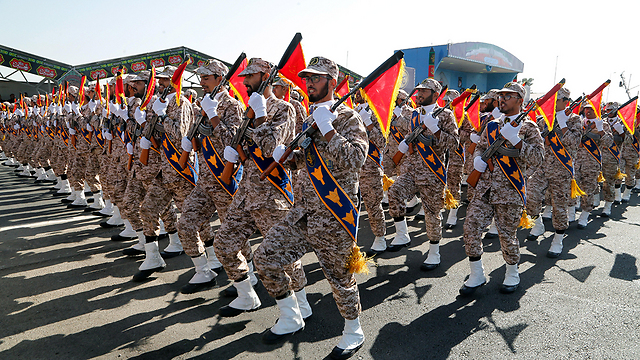
In the northwestern arena, Turkey was put in charge in the Astana talks of maintaining the Idlib province, near Turkey’s Hatay province, as a “deconflict zone.” Instead, Turkey has used the situation to bring its forces and protégés, the Syrian rebels from the Free Syrian Army, into the province. The Syrian regime responded furiously, stating Saturday that it sees the move as a military invasion of Syrian territory. According to the Assad regime, instead of fighting terror, Turkey is invading the province in full coordination with Fath al-Sham (formerly the al-Nusra Front) jihadists, who control most of the area.
Russia’s ties with Iran’s enemies
In fact, Russia is indirectly harming forces loyal to Iran. The best example is its full coordination with Israel and the recent cementing of its relations with Saudi Arabia.
The fact that Russia is turning a blind eye to the Israeli bombings of Hezbollah posts in Syria is quite puzzling in light of the alleged honeymoon between Russia and Iran. Its warming relationship with Saudi Arabia is another indication that Russia is looking into new options for the day after the war in Syria. Saudi King Salman visited Russia for the first time about two weeks ago. This was a surprising move in light of the fact that Saudi Arabia supports the Syrian opposition.
Russia is well aware of the fact that the countries capable of helping in Syria's reconstruction after the war are Saudi Arabia and the Gulf states—not Iran. Saudi Arabia, on its part, is interested in isolating Iran and driving Russia further away from it. The Iranians were undoubtedly concerned by the talks between Russia and Saudi Arabia, which focused on drafting economic agreements and signing arms deals. Saudi Minister Thamer al-Sabhan’s comment last week, that there is a need to create an international coalition against Hezbollah, received no response from Russia.
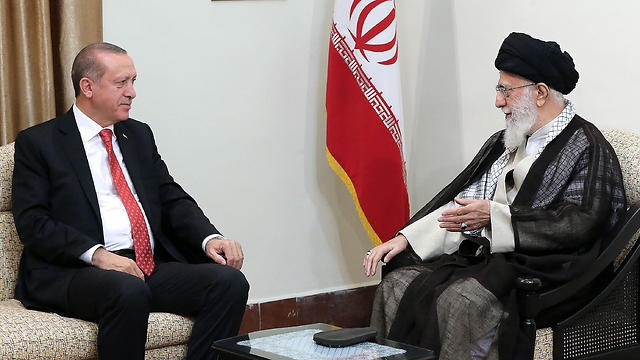
Dealing with a Kurdish force which already sustains an autonomy in northern Syria and is supported by the US army requires Russian cooperation with Washington. The possibility that, in the long run, Russia will favor the US over Iran as a partner for the division of control over Syria must not be ruled out. Unlike Iran, the US has no demands concerning the area beyond the Kurds’ control. Russian-American coordination would prevent a tough war between Kurdish-Arab organization The Syrian Democratic Forces and the Syrian army. Iran is aware of this option, which is why it vetoed an American participation in the talks in the Astana conference, a move which was criticized by Russia.
A particularly explosive bone of contention between Russia and Iran is Russia’s willingness, as it negotiates with the moderate rebels, to accept the idea of evacuating the foreign militias from Syria. In March, a Russian newspaper reported that during the Astana conference—in which Russia, Iran and Turkey discussed Syria's future—the Russians offered to supervise Hezbollah’s evacuation from Syria. According to the proposal, in the first state Hezbollah would be allotted an area where its forces would be concentrated, and in the second stage the fighters would return to Lebanon.
‘Shuffling the cards’
The fall of Aleppo, the opposition’s capital, in early 2017 marked the end of the revolt that began in Syria in March 2011. All parties came to terms with the bitter fact that after all the victims and suffering, the war in Syria was about to end with a complete failure for the rebels. The Syrian regime wasn’t toppled and the option of replacing it no longer exists. Post-war Syria won’t be a democracy, but it won’t be an Islamic emirate either.
Commentators in the Arab world are now defining the unexpected situation taking shape in the Middle East in general and in Syria in particular as a “card shuffling.”
Russia and the moderate opposition are upholding ceasefires for the first time since the beginning of the war, and meetings are taking place between former rivals—Saudi Arabia and Russia, Turkey and Russia. What will the new ties lead to? Will the Russian-Iranian alliance break up at the end of the battles in Syria? No one knows. But Saudi Arabia and Israel have already indicated to the Russians that they would rather see a Russian Syria than an Iranian Syria.
Dr. Yaron Friedman, Ynet's commentator on the Arab world, is a graduate of the Sorbonne. He teaches Arabic and lectures about Islam at the Technion, at Beit Hagefen, and at the Galilee Academic College. His book, "The Nusayri Alawis: An Introduction to the Religion, History and Identity of the Leading Minority in Syria," was published in 2010 by Brill-Leiden.














